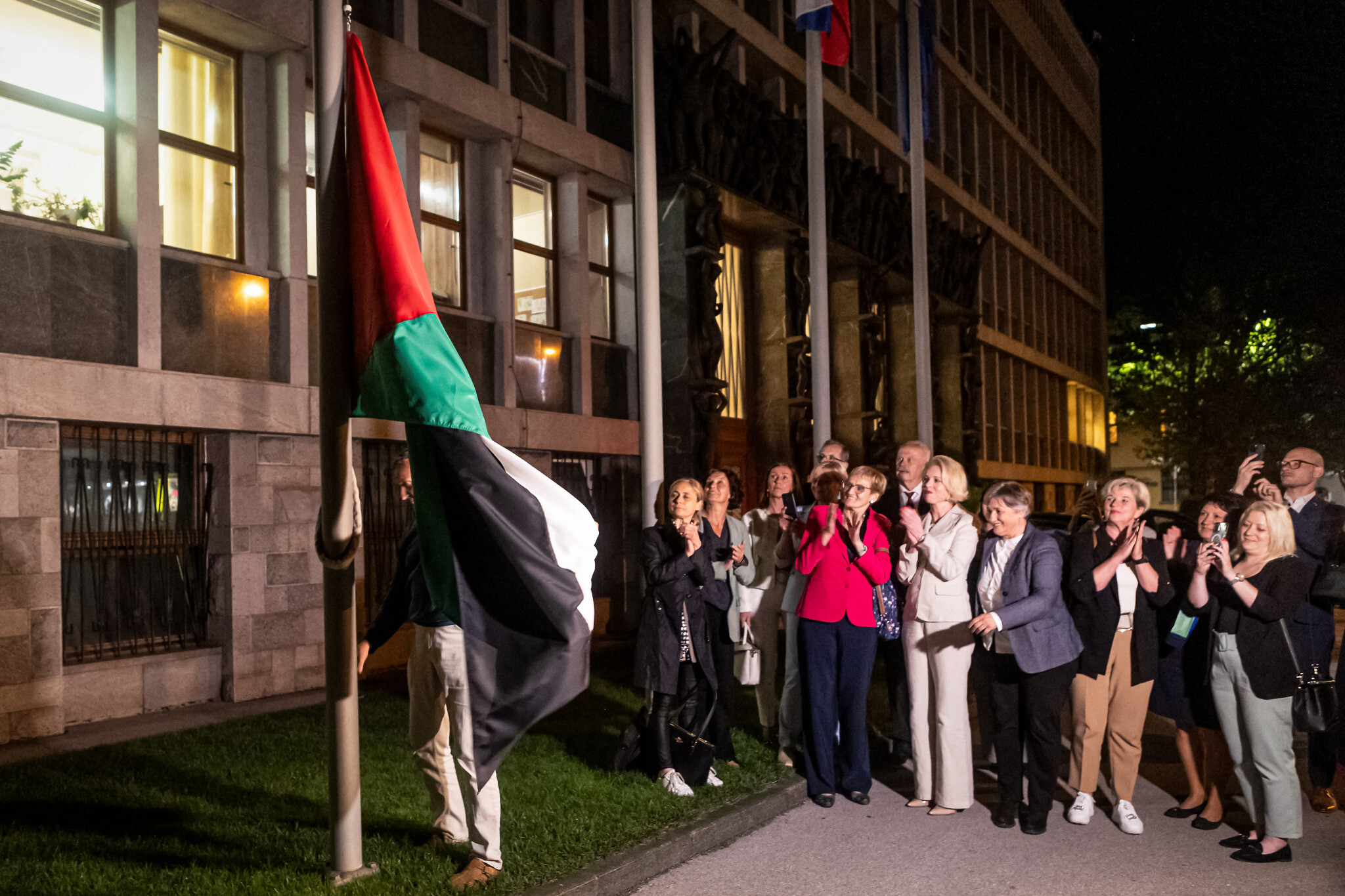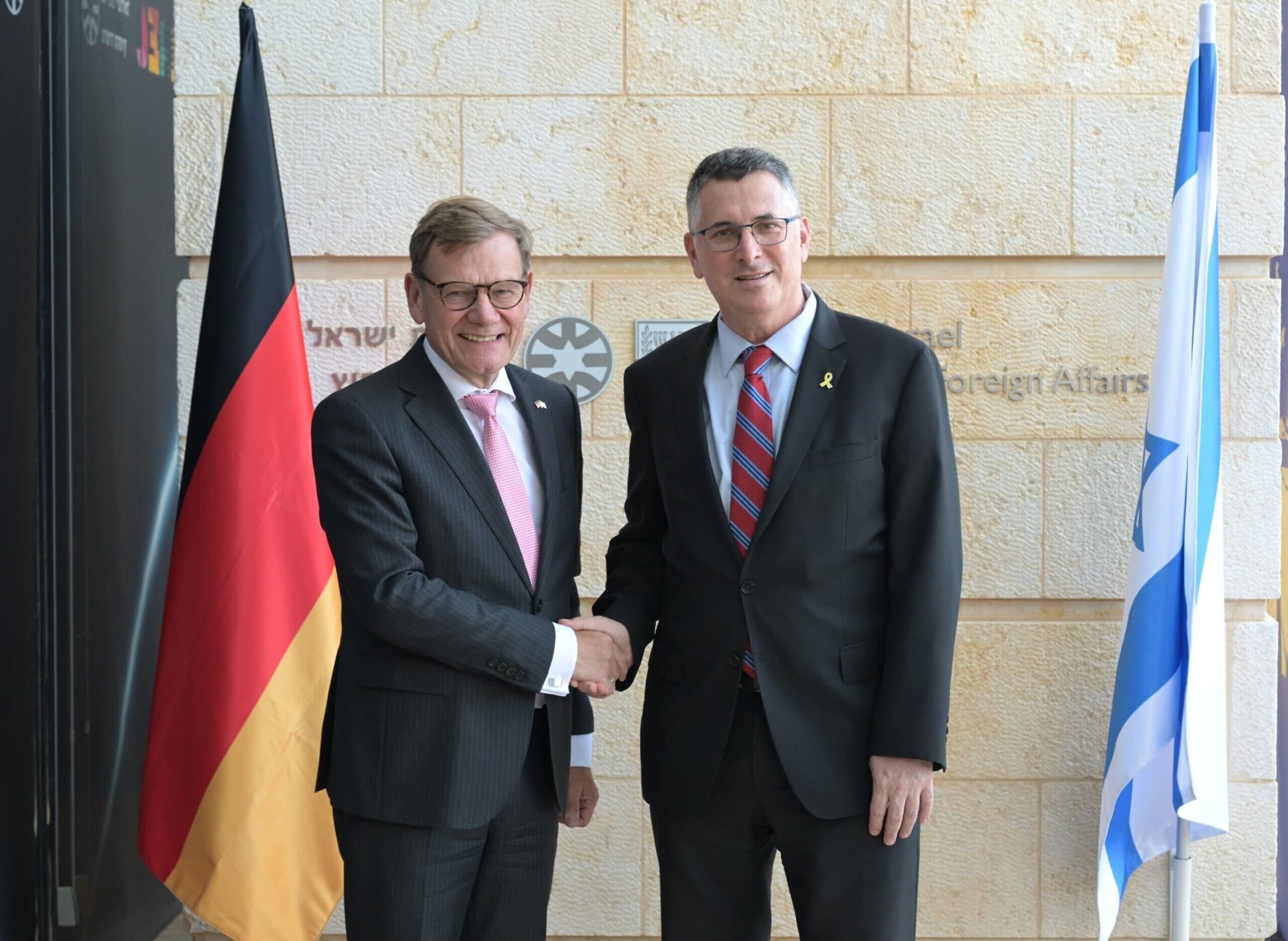



Slovenia announced on Thursday that it will ban all weapons trade with Israel over the war in Gaza, in what it said is a first by a European Union nation, as criticism of Israel over the humanitarian crisis in Gaza continues to grow globally.
“Slovenia is the first European country to ban the import, export and transit of weapons to and from Israel,” the government said in a statement, clarifying that it is moving ahead “independently” because the EU is “unable to adopt concrete measures… due to internal disagreements and disunity.”
In response, an unnamed Israeli official told Ynet: “There is no defense procurement from Slovenia. We don’t buy so much as a pin from them. They simply decided on an embargo for the sake of the media, because they can, but it’s completely meaningless.”
The Slovenian statement said that amid the devastating war in Gaza, where “people… are dying because humanitarian aid is systematically denied them,” it is the “duty of every responsible state to take action, even if it means taking a step ahead of others.”
It added that the government has not issued any permits for the export of military weapons and equipment to Israel since October 2023 because of the conflict.
Slovenia’s government has frequently criticized Israel over the conflict, and last year moved to recognize a Palestinian state as part of efforts to end the fighting in Gaza as soon as possible.
Early in July, Slovenia — also in an EU first — banned two far-right Israeli ministers — Bezalel Smotrich and Itamar Ben Gvir — from entering the country. It declared both Israelis “persona non grata,” accusing them of inciting “extreme violence and serious violations of the human rights of Palestinians” with “their genocidal statements.”
In a visit to Jerusalem, German Foreign Minister Johann Wadephul warned on Thursday that Israel is in danger of becoming diplomatically isolated amid the growing international outrage over the situation in Gaza, and that Berlin is trying to prevent that.
“Israel must always find friends, partners, and supporters in the international community. And that is currently in danger in this situation. And if there is one country that has a responsibility to prevent this, then in my view it is Germany,” Wadephul told reporters.
Wadephul held meetings with Prime Minister Benjamin Netanyahu and Foreign Minister Gideon Sa’ar after landing in Israel on Thursday afternoon, and was slated to travel to the West Bank on Friday for additional discussions on the Gaza humanitarian situation amid widespread international moves toward recognizing a Palestinian state.
Because of outrage over Israel’s policies in Gaza, France, the United Kingdom and Canada announced this week that they planned to recognize a Palestinian state. Australian Treasurer Jim Chalmers said on Thursday that it is a matter of time until Canberra follows suit.
Wadephul has warned that while Berlin opposes unilaterally recognizing a Palestinian state, it may be forced to reconsider if negotiations for a two-state solution are not renewed.
Since the war between Israel and Hamas began, more than 60,000 people in the Strip have so far been killed or are presumed dead, according to the Hamas-run Gaza health ministry. The toll cannot be verified and does not differentiate between civilians and fighters. There are also an increasing number of reports on a looming famine in Gaza.
The war began with Hamas’s devastating October 7 attack on southern Israel, killing around 1,200 people, mostly civilians. More than 450 Israeli soldiers have subsequently been killed fighting in the Strip.
In his meeting with Wadephul, Sa’ar said that the global moves to recognize a Palestinian state have encouraged Hamas to harden its stance regarding a ceasefire and hostage-release deal.
Addressing the stalled negotiations for a truce, Sa’ar told Wadephul that Hamas “is not interested in reaching a deal,” according to a readout of the meeting from Sa’ar’s office.
“Hamas is holding the hostages, refusing to disarm, and is entrenched in its rejectionist stance toward a hostage deal because it sees the international community rewarding it with prizes and gifts,” Sa’ar’s office said in the readout.
The two ministers held a private discussion followed by an expanded meeting with representatives from both sides, according to the readout.
Sa’ar also emphasized Israel’s opposition to recognizing a Palestinian state, telling Wadephul that “We don’t call these areas ‘the West Bank,’ we call them ‘Judea and Samaria,'” referring to the Biblical term for the territory.
“We believe that Jews have the right to live in the heart of their historic homeland — including in Judea and Samaria,” Sa’ar told his counterpart, while also accusing the Palestinian Authority of inciting hatred against Israel through its education system and media activities, and of providing financial support to terrorists.
“If the PA were to gain control over the borders and airspace,” Sa’ar cautioned, “we would find ourselves flooded with Iranian weapons inside Israel. That will not happen.”
Sa’ar also referred to “illegal Palestinian construction in Area C,” saying that turning a blind eye to it is “hypocrisy.”
Palestinians living in towns and villages in Area C, which is under full Israeli civil and military control and makes up 60 percent of the West Bank, can rarely receive building permits. As a result, the construction they do in the area is often done illegally. Organizations behind the settlement movement reject these building efforts, seeing them as part of an effort to take full control of the area.
A Palestinian state cannot be established “for the simple reason that Israel cannot compromise on its security,” Sa’ar concluded, according to his office.


